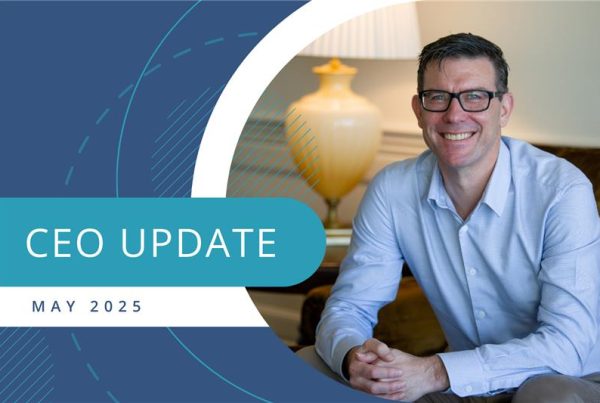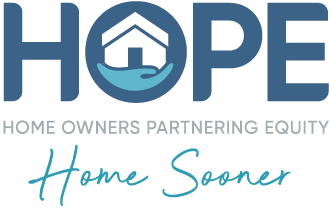
Affordable housing has become the catch cry of just about every politician, journalist and stressed-out millennial and Gen Z over the past few years. And for good reason – it’s the most far reaching financial and social challenge faced by Australians in decades, the impacts of which are already being felt within many areas of our economy.
Despite the doom and gloom presented in the media, problems like affordable housing aren’t intractable. In fact, many clever affordable housing investment solutions are emerging across the housing spectrum that are enabling new affordable dwellings to be built and existing dwellings to be accessed more affordably for home ownership. Contrary to popular belief, it’s novel financing and technology solutions pioneered by the private sector that are driving these positive housing outcomes, not government subsidies, which have done little to move the home ownership affordability dial for Australians, in particular key workers.
As well as solving a critical problem, these private sector housing investment solutions can present lucrative new investment opportunities for Australians, who remain one of the keenest investors in property globally. However, like any investment, there are a myriad of different propositions within the affordable housing asset class, with different financial and social return characteristics.
Balancing Financial and Social Returns
While financial returns will always be top of mind for any investor, many will be aware, through personal experience, the impact that renting and/or social housing solutions can have on an occupant’s health and wellbeing. Those impacts are now being carefully studied by researchers and academics here in Australia and globally. Recent findings suggest that people living in private renting age faster that those who own their own home outright. Every year of private renting ages tenants 2.4 weeks faster than homeowners, and its impact on ageing is worse than being unemployed, obese or a former smoker. This is predominantly due to the impacts insecure living arrangements have on faster epigenetic ageing (the study of how your behaviours and environment can cause changes that affect the way your genes work).
Other studies have also shown that renting has an impact on fertility rates. As rents rise, fertility falls, impacting women in the 20s the most. For investors with a gender equality and diversity bent, this is an important consideration.
With all this in mind, many investors may choose to prioritise investments into affordable housing solutions that not only deliver best-in-class financial returns but focus on long-term housing stability, like affordable home ownership.
Why Invest in Affordable Housing?
Many affordable housing investments aim to generate financial returns that out-perform the broader residential property market while also providing much needed social infrastructure. They offer investors an alternative access point into the residential property asset class (compared to traditional private rental) and the ability to diversify an investor’s overall property exposure, which may be overweight in under-performing office or other non-residential property holdings.
Affordable housing investment propositions can be broken down into two types; investments that increase affordable rental dwellings and investments that help Australians access more affordable home ownership.
Innovative Affordable Housing Investment Models
Affordable Rental
Affordable rental investment options aim to provide residential accommodation below market rental prices.
The National Rental Affordability Scheme (which is now closed to new investments) offered landlords who purchased new dwellings tax and cash incentives, provided they rented the property to low and moderate income households at 20% below market rate.
Investment funds like Conscious Investment Management pool investments in affordable rental and other specialist disability accommodation assets, targeting total net returns of 7 – 11% per annum. These returns are a combination of subsidised rental income and capital growth. The fund does not publish its performance results publicly.
NDIS Specialty Disability Accommodation (SDA) is another investment opportunity within the affordable rental stream. SDA returns are tightly correlated to the amount of rental subsidy the federal government is prepared to pay to each NDIS scheme participant. Funds like Inspire Impact pool investments into SDA housing and target yields of 8 – 10%. The fund does not publish its performance results publicly.
ASIC recently instructed investors to ‘exercise diligence and due caution’ when considering investments into the SDA sector, after a raft of over-hyped investment firms entered the market.
Risk Mitigation and Sustainable Returns
Affordable rental investment propositions will derive most, if not all their return through rental income. To be classed as an affordable rental, rent must be priced below market rent, with 20% being the general discount applied. To make up for the shortfall, which otherwise would negatively impact yields, affordable rental schemes will apply to state and federal governments for subsidies. Investors should be alert to the risk of subsidies being removed, or changed over time, which could impact the sustainability of ongoing returns at advertised levels.
It is also important to note that in tight rental markets and inflationary economic conditions, any blunt discount applied to market rent may have little to no impact on actual affordability for occupants. A better definition of affordability would be to link rent to the income profile of targeted tenants, however few, if any schemes price rent in this manner. This can mean many well-intentioned affordable rental schemes are not able to service those most in-need, and often fall short of investors impact expectations.
Just as ‘greenwashing’ has become an issue in climate related investments, it is important to read past the headline of any affordable rental scheme investment proposition, and interrogate the underlying data and profiles of the individuals who are ultimately being helped.
Affordable Home Ownership
Home ownership is a significant wealth creation tool for Australians, and falling rates of home ownership are contributing to rising inequality in Australia. Studies have shown that homeownership also improves labour markets1, results in better mental and physical health, reduces divorce rates, improves fertility rates2 and results in better outcomes for children.
Affordable home ownership solutions can assist buyers into the market sooner by assisting with deposit finance or by taking an equity stake in the home, thereby reducing the upfront financing costs of buying a home.
Exploring Government Initiatives and Private Funds for Affordable Housing Solutions
Government shared equity schemes help single women over 50 and low-income Australians access shared equity through state and federal programs. KeyStart is a successful program in WA and funds up to a maximum of 30% of the purchase of a home. Similar schemes in NSW and VIC have emerged in the past few years, with the federal government also launching a Help To Buy scheme in 2024.
Similar to the government schemes, but with fewer restrictions on homeowners and open to private investment, is not-for-profit fund manager HOPE Housing. The HOPE Fund takes equity stakes of up to 50% in a property owned and occupied by an essential worker, with investors able to access capital growth returns on the pool of shared equity investments inside the Fund.
Working with property experts, like Opteon Australia, the HOPE Fund helps police, nurses, teachers and other key workers buy investment grade properties close to where they work, with strong growth characteristics. This ensures financial and social outcomes for homeowners and investors are aligned. All upfront costs and ongoing property maintenance costs are met by the owner, who can progressively increase their ownership over time through an equity buy out mechanism.
What Sets HOPE Apart in Affordable Housing Investments?
Downside investor protections
Unlike other shared equity arrangements in the market, the HOPE Fund’s shared equity stake ranks equal with the homeowner and any first mortgage on the property, reducing the risk to investors. This is an important protection that ensures the Fund’s equity stake entitles it to a proportional share of the proceeds of a sale or refinance event.
Carefully thought through legal agreements
Strong legal agreements between the homeowner, banking partner and the HOPE Fund prioritises fair outcomes for all parties and ensures homeowners and investors benefit equally from renovations and enhancements made to the property. HOPE has worked closely with Hall & Wilcox, a top tier legal firm in Australia, to design innovative and easy to understand legal agreements that meet complex regulatory requirements and the commercial needs of investors and lending partners.
Measurable social return
While financial returns are the HOPE Fund’s primary performance metric, the fund places great importance on measuring the social value we create through our shared equity model. Since establishing its Fund in October 2022 the HOPE Fund has invested in 17 properties that house 26 essential workers (some households have more than one), including ten police, seven religious ministers, four teachers, two nurses, two allied health workers and one social worker. This impact measurement is calculated using tools developed in partnership with impact experts – Think Impact.
Fund rating
The HOPE Fund is the first privately operated shared equity scheme in Australia to receive an independent fund rating from a well-regarded ratings house, Evergreen. The fund has been rated ‘Satisfactory’ – the report can be accessed here.
Can I Invest in Affordable Housing as an Individual?
Individuals can invest in affordable rental schemes by investing in funds that have negotiated access to rental subsidies for a portfolio of properties they have acquired or are developing. Often these funds are only open to wholesale and sophisticated investors and may have high investment minimums.
Investing in SDA housing can be done directly by property investors, however there is a significant amount to consider from the choice of property through to finding a suitable tenant. Each individual tenant’s needs are likely to be unique, so unlike standard rentals, be prepared to spend more time during the property and tenancy selection process or pay to work with agencies that can match you with properties and suitable tenants. All of these costs (agency fees and your time) should be considered when calculating the overall investment return.
The is accessible to individual investors, provided they meet the wholesale and sophisticated investor definition. The fund gives investors a new way to access the stable and solid returns of the Australian residential property market, while enabling home ownership for critical key workers. Unlike direct property investment, there are no upfront or ongoing costs associated with the properties in the portfolio, as stamp duty, maintenance, rates and strata fees are borne by homeowners. There is no land-tax costs for investors, as participating homeowners in the scheme are exempt under the principal place of residence definition.
The minimum investment into the HOPE Fund is $100,000 and more details are available in the HOPE Fund investor pack.
Takeaway
Investing in housing is a great way to achieve both financial and social impact. While investing in affordable rental solutions can help alleviate critical urgent housing needs, investing in affordable home ownership delivers greater long-term impact to younger Australians, families and the broader economy. The great news is investors now have access to innovative investment solutions that tackle the housing crisis from both angles.
2 https://www.nber.org/digest/feb12/impact-real-estate-market-fertility#
(A) Portfolio growth is determined by estimating market value of the properties within the Fund’s portfolio monthly, using CoreLogic IntelliVal (Automated Valuation Estimate) and PropTrack AVM. The change in total portfolio value is indexed from a base value of 100, established at the inception of the Fund’s portfolio, to account for the addition of new properties during the same period. The 12-month growth represents the cumulative growth over the prior four quarters. The portfolio growth information does not take into account liabilities or expenses of the Fund and therefore may not reflect overall Fund performance.
Disclaimer
(i) Past performance is not a reliable indicator of future performance. Refer to the Fund Private Placement Memorandum (PPM) for further details which should be reviewed carefully prior to investing.
The information in this article was finalised in June 2024.
The article has been prepared by HOPE Housing Fund Management Limited ACN 629 589 939 (Investment Manager/Manager/Company/HOPE/HOPE Housing) directed to wholesale clients and is strictly for general information and discussion purposes only, without taking into account your personal objectives, financial situation or needs. Before acting on this general information, you must consider its appropriateness having regard to your own objectives, financial situation and needs. The information provided is not intended to replace or serve as a substitute for any accounting, tax or other professional advice, consultation or service and nothing in this article shall be construed as a solicitation to buy or sell any financial product, or to engage in or refrain from engaging in any transaction.
The Investment Manager is a corporate authorised representative (number 001289514) of SILC Fiduciary Solutions Pty Ltd ACN 638 984 602 (AFS licence number 522145). The authority of the Investment Manager is limited to general advice and deal by arranging services to wholesale clients relating to the HOPE Housing Investment Trust (Fund/HOPE Fund) in Australia only.
Memorandum (PPM) dated 19 April 2024 issued by the Specialised Investment and Lending Corporation Ltd ACN 149 520 918 (AFS licence number 407100) (Trustee) which offers investors an opportunity to subscribe for units in the Fund is available. If you would like to receive a copy of the PPM, please email [email protected] Prospective investors should carefully consider the contents in the PPM in full and seek professional advice prior to making any decision regarding an investment in the Fund. Past performance and/or forward-looking statements are not a reliable indicator of future performance. Information relating to the Fund contained in this document has been prepared without taking into account the objectives, circumstances, or needs of any person, and may differ to information contained in the PPM. Except as required by law and only to the extent so required, neither the Investment Manager nor its affiliates warrant or guarantee, whether expressly or implicitly, the accuracy, validity, timeliness, merchantability or completeness of any information or data (whether prepared by us or by any third party) within this document for any particular purpose or use or that the information or data will be free from error. Further, the Trustee, the Investment Manager and its affiliates expressly disclaim any responsibility and shall not be liable for any loss, damage, claim, liability, proceeding, cost or expense arising directly or indirectly and whether in tort (including negligence), contract, equity or otherwise out of or in connection with or from the use of the information in this document.




